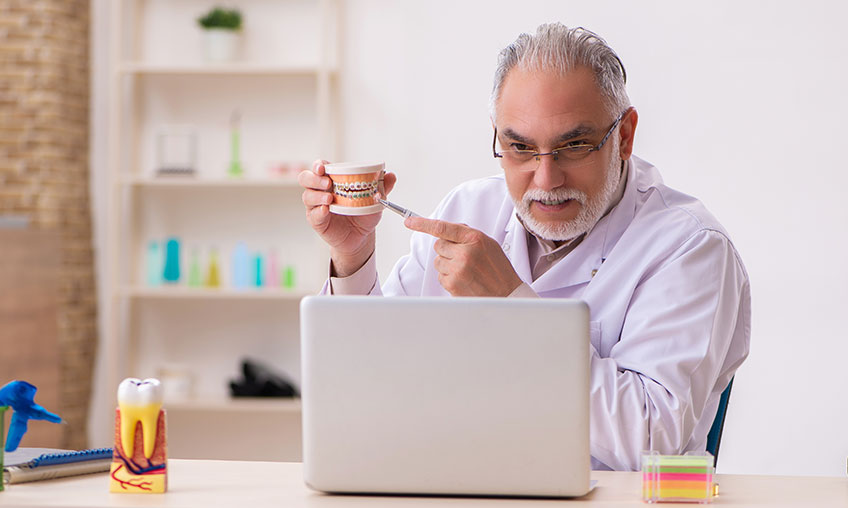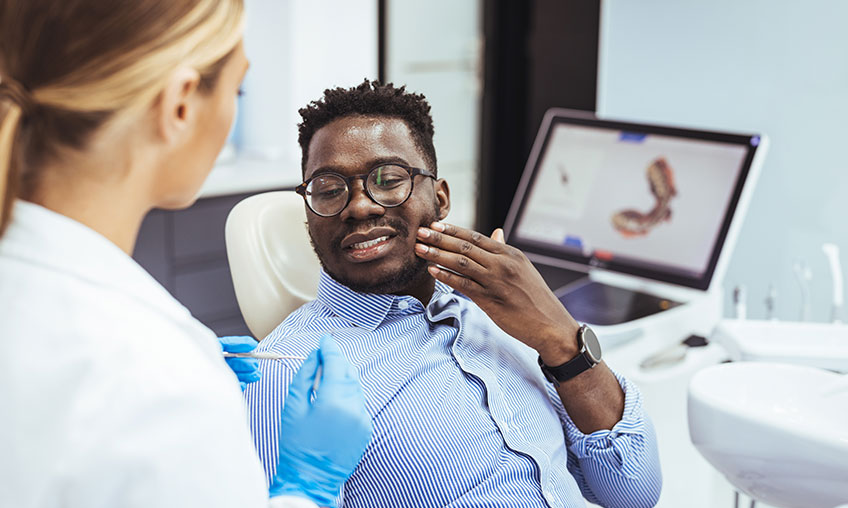
Good oral health is important for everyone and can make a big difference in the quality of life for a someone with a disability.
If you care for someone with a developmental delay or intellectual disability, here is how to help maintain their oral health.
- Do your own brushing and flossing in front of them so they’ll see what you will do for them.
- Explain each step before you do it.
- Brush and floss at the same time in the same place every day.
- Play music or let the person you care for hold a favorite toy for comfort.
- Sitting or standing behind the person while brushing and flossing usually makes the process easier.
- An electric toothbrush may be more comfortable, if the sound or feeling does not bother the person you care for.
- Try different kinds of floss to find which one the person likes. A floss holder or a power flosser may be helpful.
- Toothpaste bothers some people with swallowing problems. In that case, just brush their teeth water.
- For people who can’t rinse after brushing, give them a drink of water, or wipe their mouth with a finger wrapped in gauze.
Going to the Dentist
It may take time for the person in your care to feel safe at the dentist. Ease the experience by requesting a “get-to-know you” visit first. Use that time to share their medical history. Bring the person’s ID card, medical history and list of all medications with you. Tell the dentist about good and bad experiences during previous dental visits and ask the dentist for tips.
During the same visit, the person you care for can meet the dentist, sit in the dental chair, look around the exam space, and hear what will happen during their exam.
We work to improve the oral health of all here at DentaQuest, part of Sun Life U.S. Click here to find a dentist.
 Preventistry Pulse Image
Preventistry Pulse Image
PREVENTISTRY PULSE
The newsletter designed for anyone who wants to improve oral health for themselves, their families, customers or communities.


